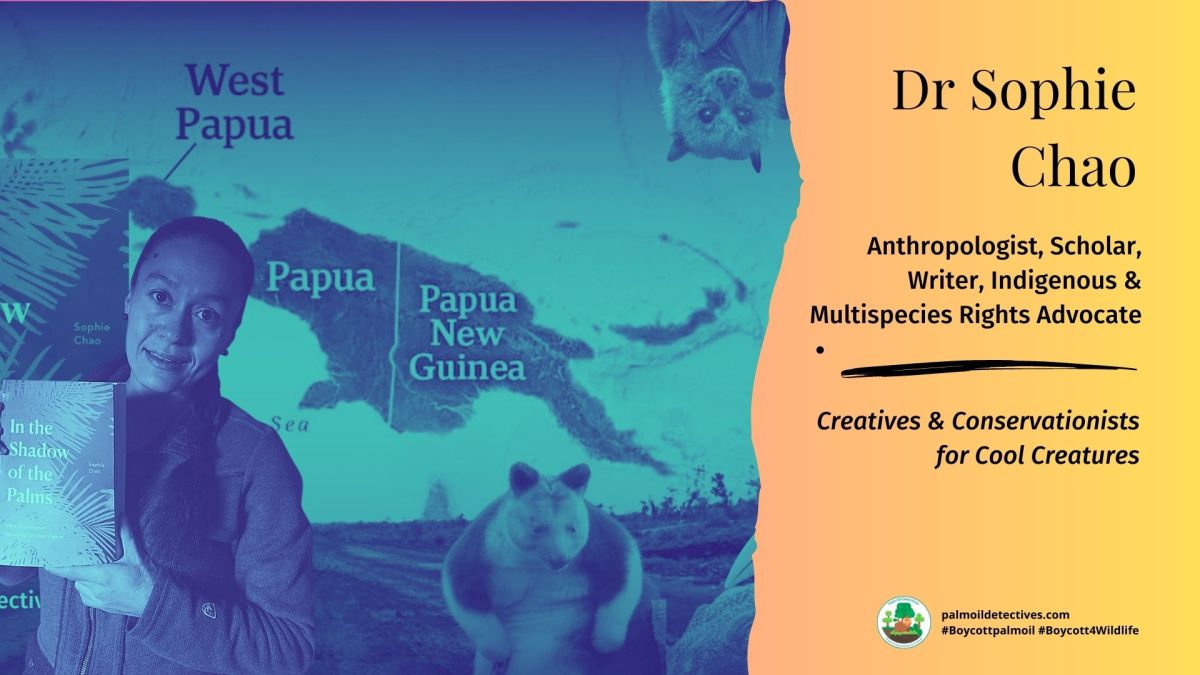Yucatán Black Howler Monkey Alouatta pigra
Endangered
Belize; Guatemala; Mexico (Quintana Roo, Campeche, Chiapas, Tabasco, Yucatán)
Yucatán Black Howler Monkeys are best known for their overpowering howl which can be heard up to 3 miles away. Morning and evening howling sessions can go on for over an hour. They are the largest #monkey in Latin America and keep a watchful presence in densely forested primary and secondary forest, mangroves and other human disturbed landscapes.
Their range is being rapidly destroyed for palm oil and sugar cane deforestation and mining. They are also facing human persecution and hunting pressures. Yucatán Black Howler Monkeys have been classified as endangered since 2004. Help them every time you shop and #Boycottpalmoil #Boycott4Wildlife
Yucatán Black Howler #Monkeys 🐵🐒🩷 are endangered from #palmoil #deforestation in #Guatamala 🇬🇹#Mexico 🇲🇽 Their loud communal howling can be heard 5km away 🎶 Help them to survive when you #Boycottpalmoil 🌴🚫 #Boycott4Wildlife @palmoildetect https://palmoildetectives.com/2021/03/22/yucatan-black-howler-monkey-alouatta-pigra/
The Yucatán Black Howler #Monkey is endangered by #palmoil #deforestation and mining in #Guatamala, #Mexico. Their loud communal howling can be heard for up to 5km away. Don’t let the forests go silent! #Boycottpalmoil #Boycott4Wildlife https://palmoildetectives.com/2021/03/22/yucatan-black-howler-monkey-alouatta-pigra/ via @palmoildetect
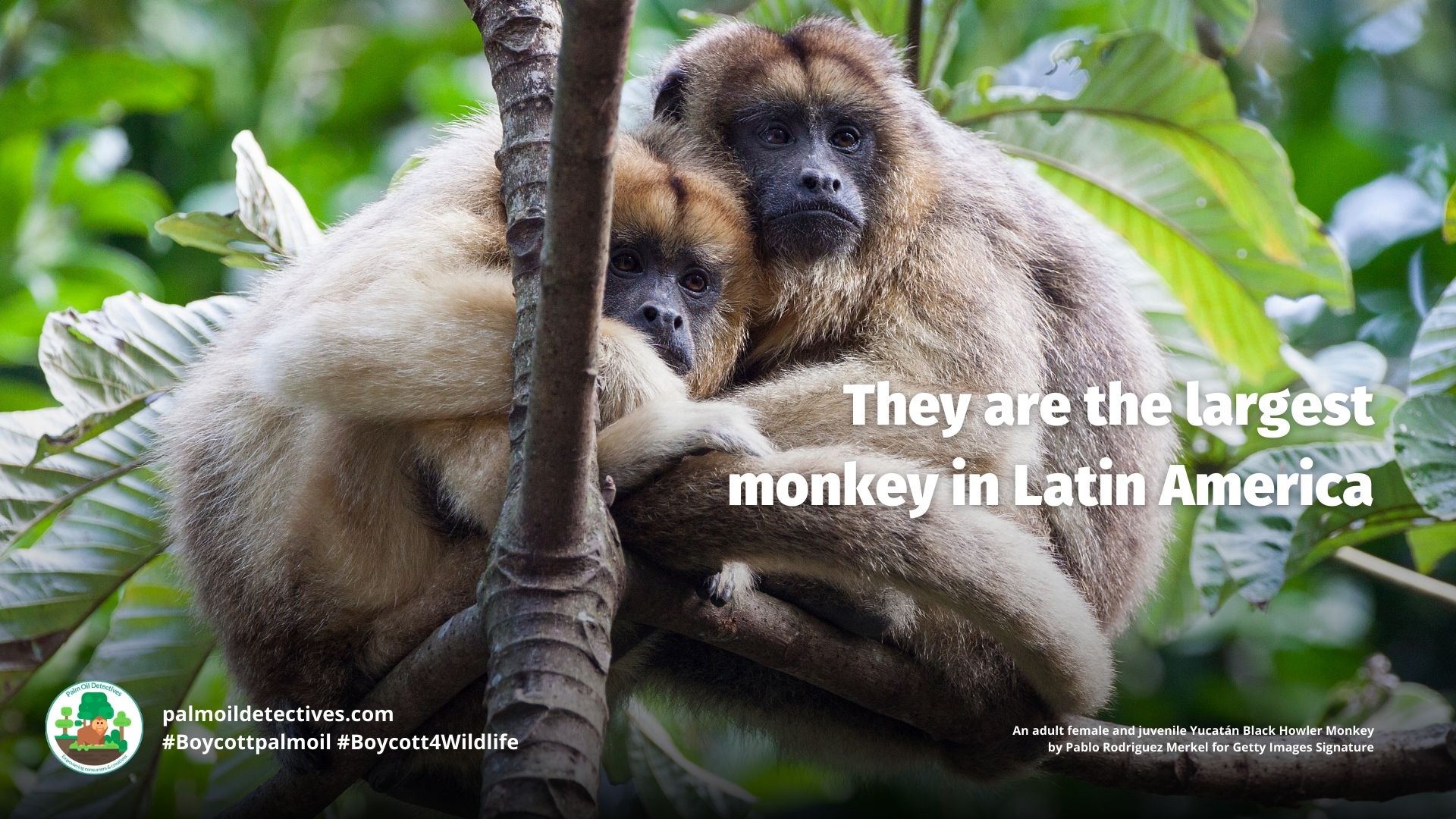
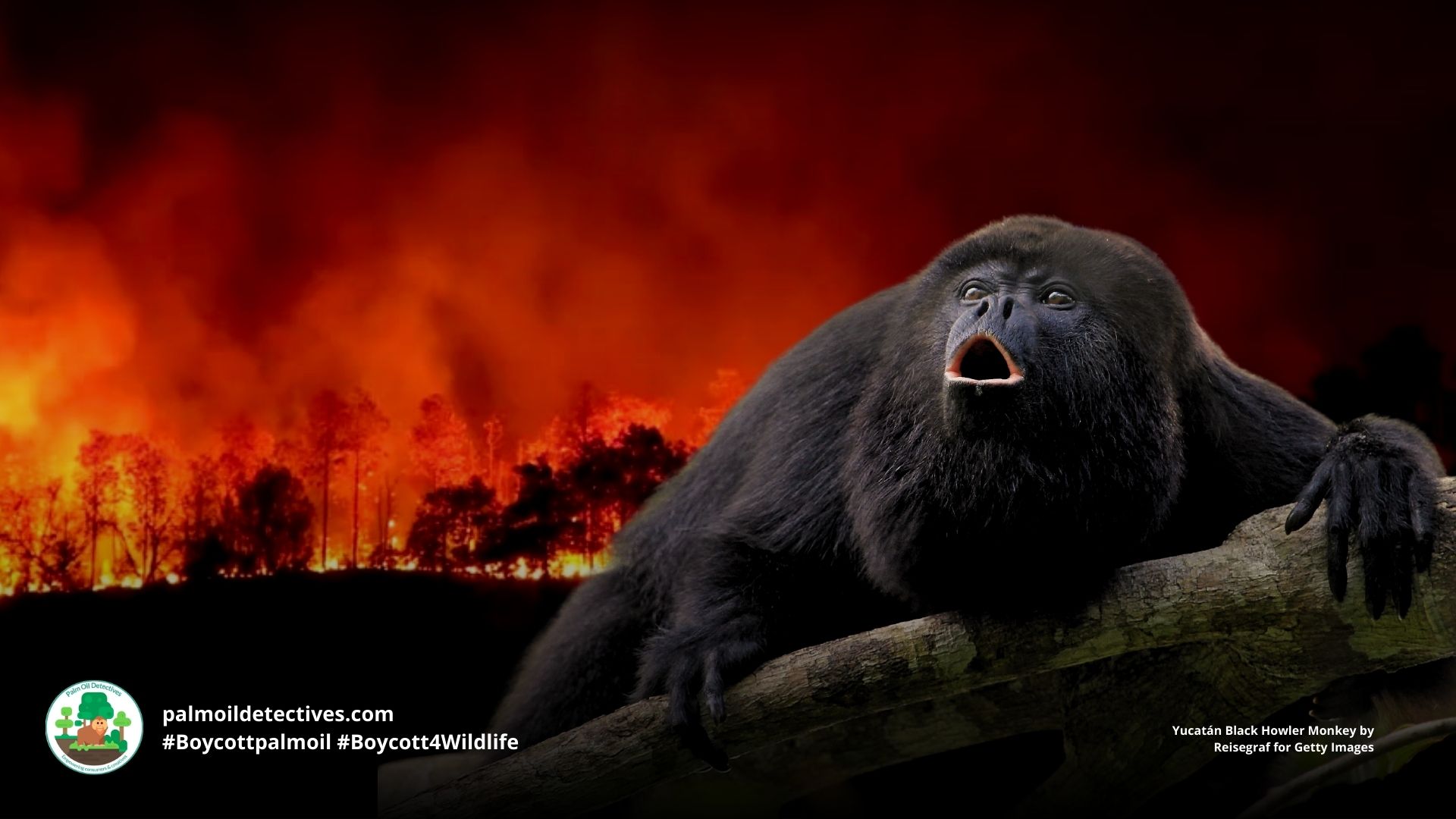
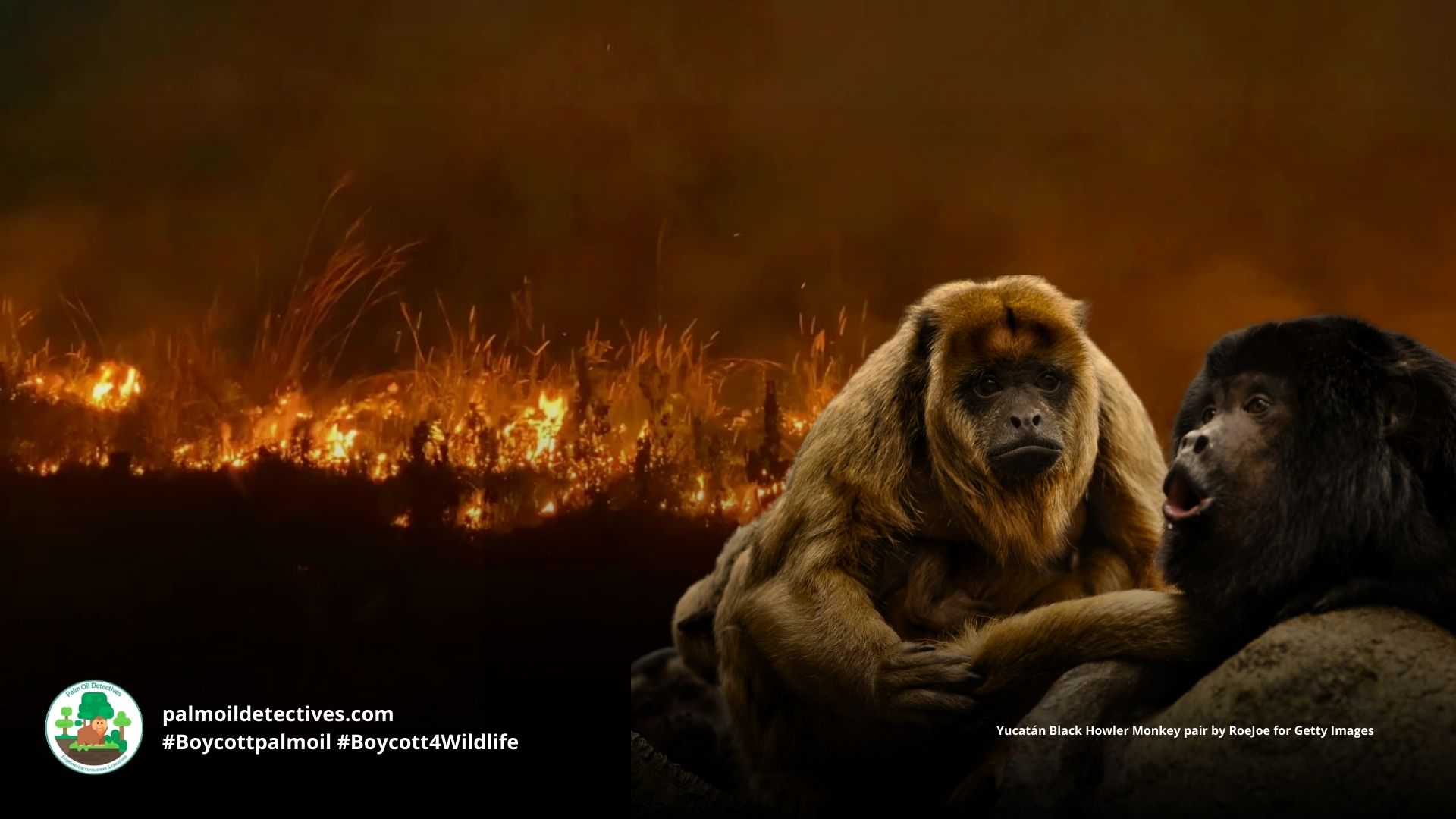
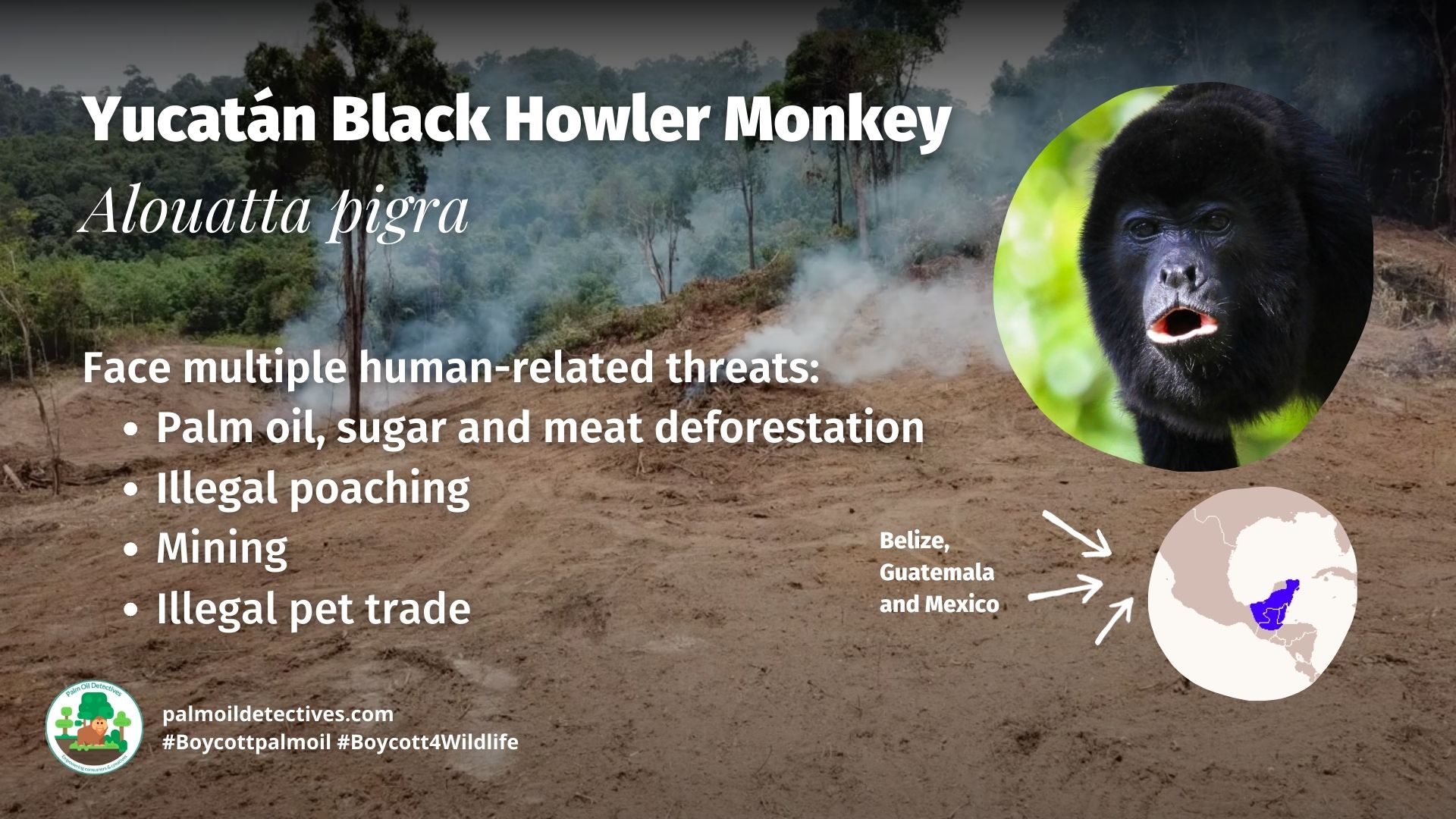
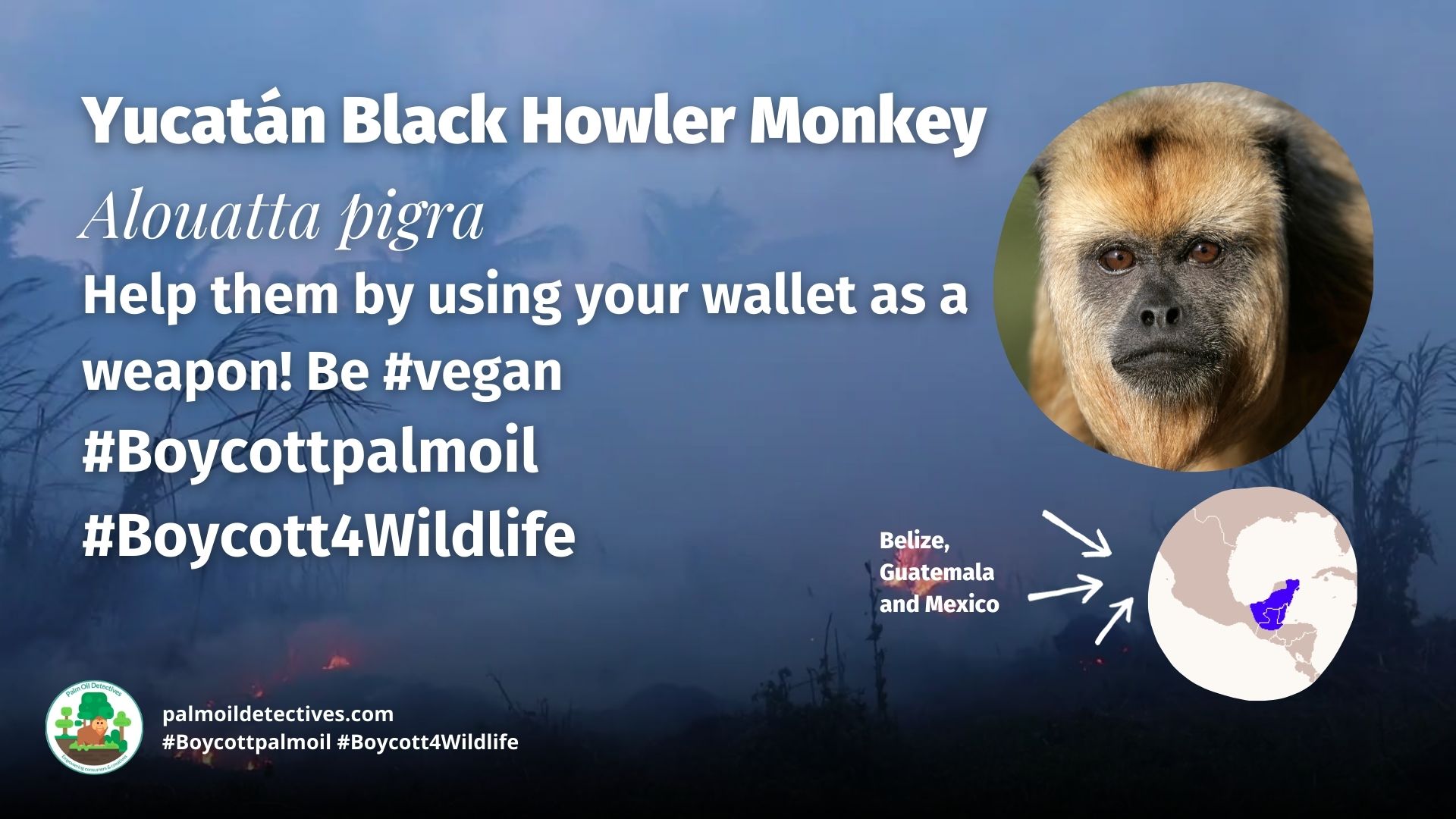


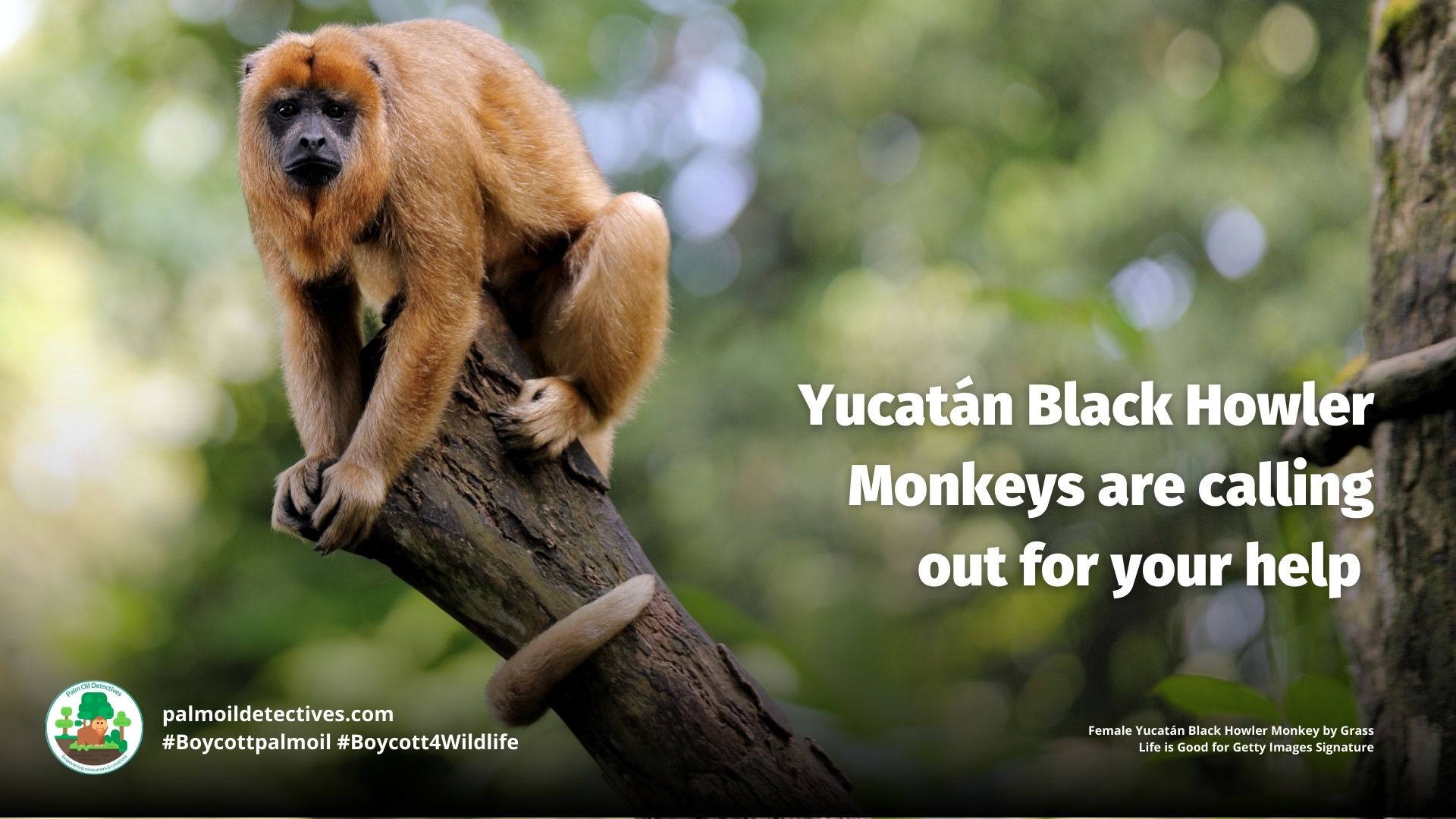

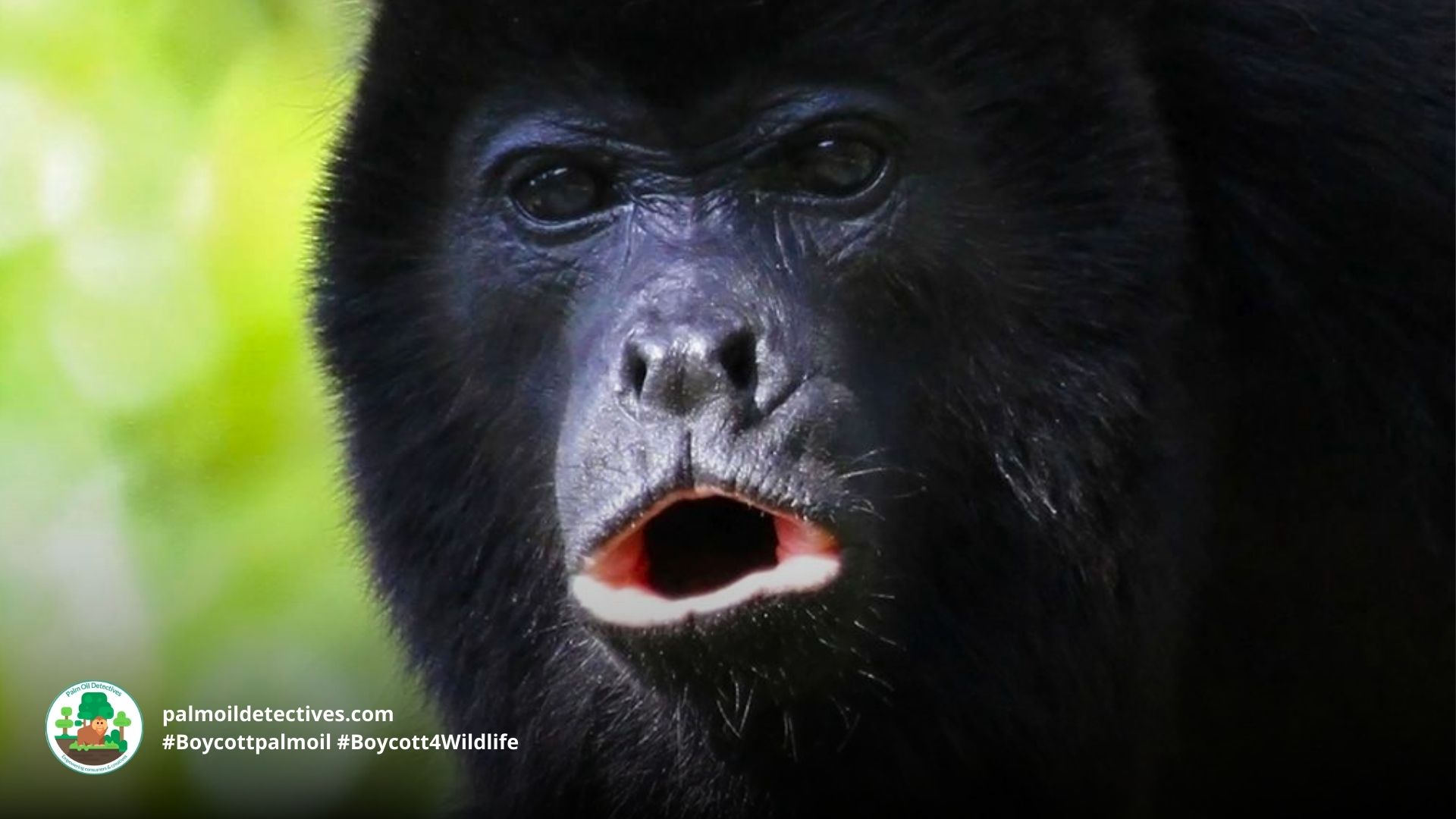
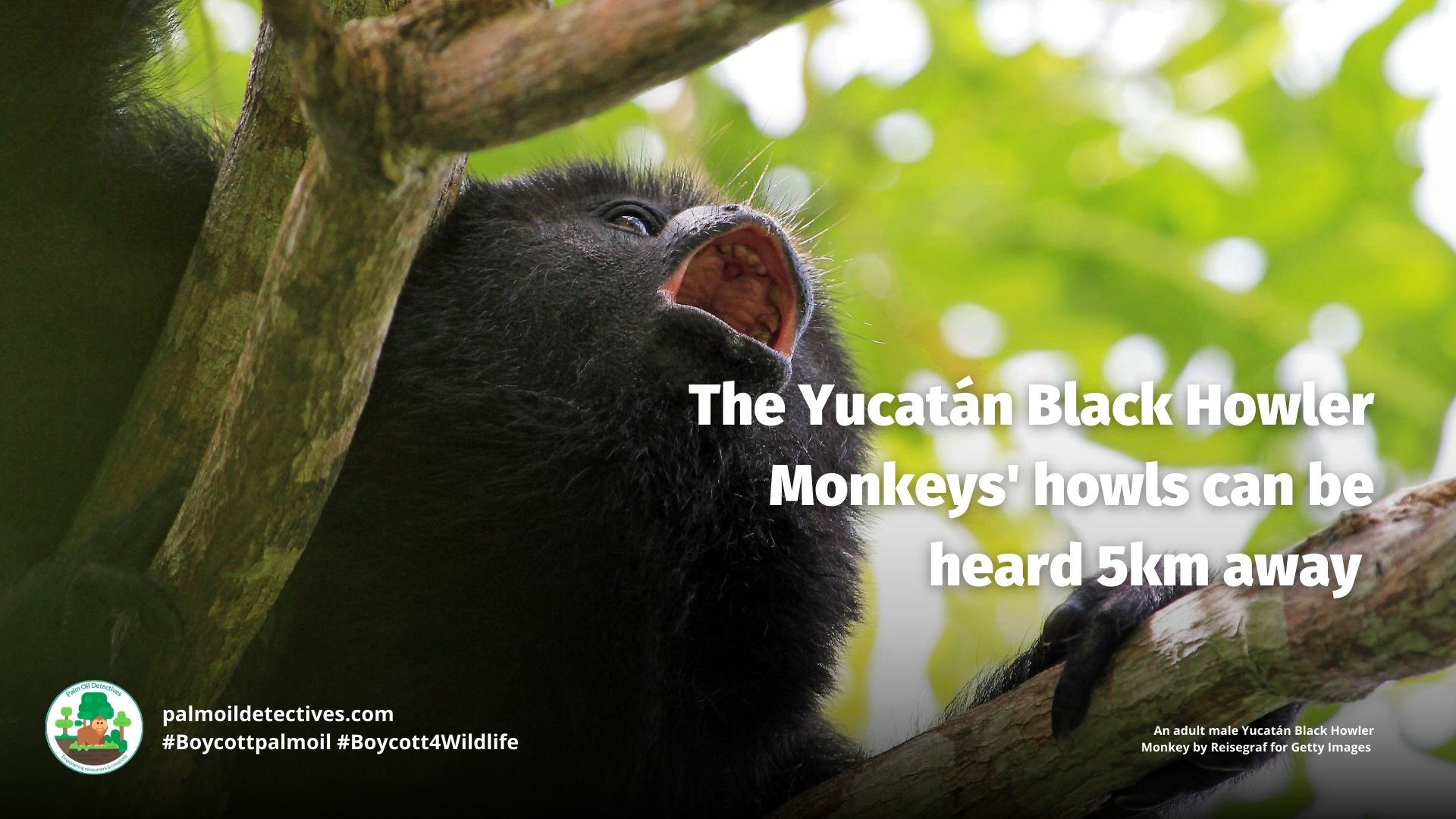

Yucatán Black Howler Monkeys prefer to live in a variety of forests and spend their days high up in the boughs of trees in evergreen and semi-evergreen forests, deciduous and semi-deciduous broad-leaved forests, mangroves, swamps eucalyptus plantations and agricultural plantations.
The main threats for black howler monkeys are accelerated deforestation rate across its distribution and the direct extraction of individuals for pet trade. In Guatemala a high rate of deforestation has been associated with the rapid expansion of the agriculture frontier due to megaprojects such as African palm oil and sugar cane, and the destruction of forest due to open mining (Foucart 2011).
IUCN red list
Behaviour
The howling of these monkeys is loud enough to be heard three miles away. A study in 2014 revealed just why Alouatta pigra and other howlers call out so loudly.
Our findings suggest that loud calls in black howler monkeys are multifunctional, but most frequently occur in the defense of major feeding sites. These calls also may function in the defense of infants and mates during encounters with extragroup males.
Van Belle, S., Estrada, A., & Garber, P. A. (2014). The function of loud calls in black howler monkeys (Alouatta pigra): Food, mate, or infant defense? American Journal of Primatology, 76(12), 1196–1206. https://doi.org/10.1002/ajp.22304
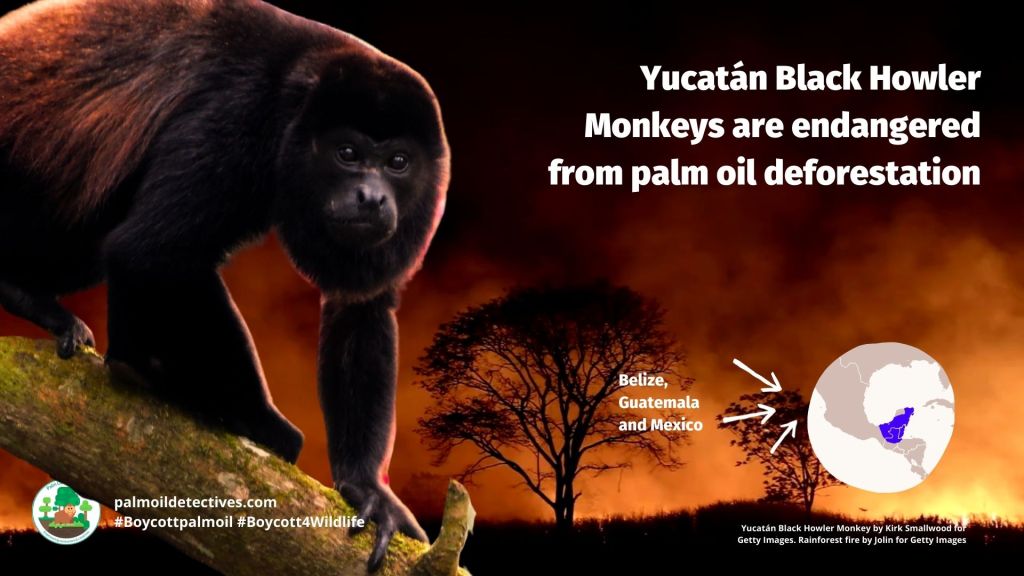
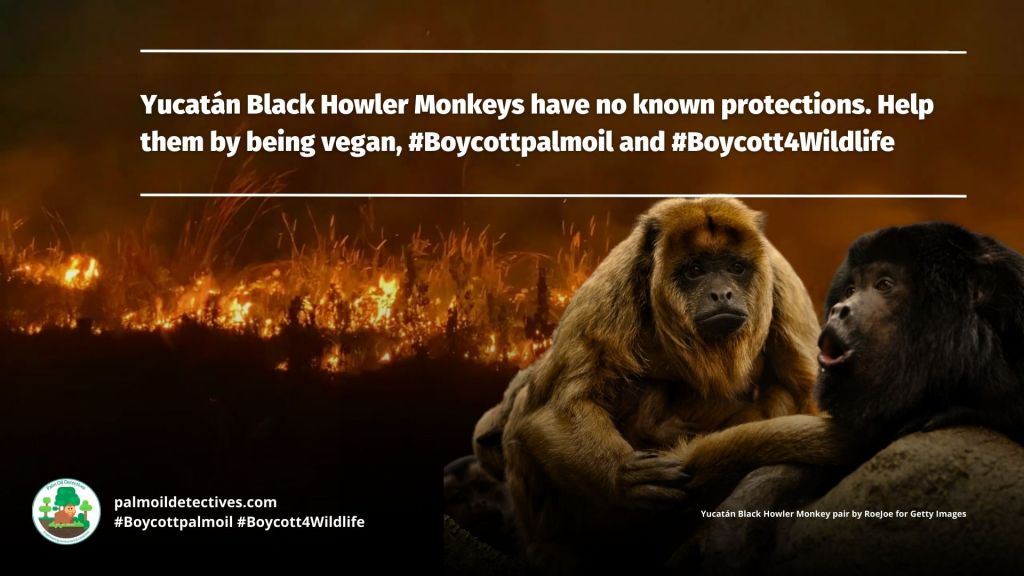
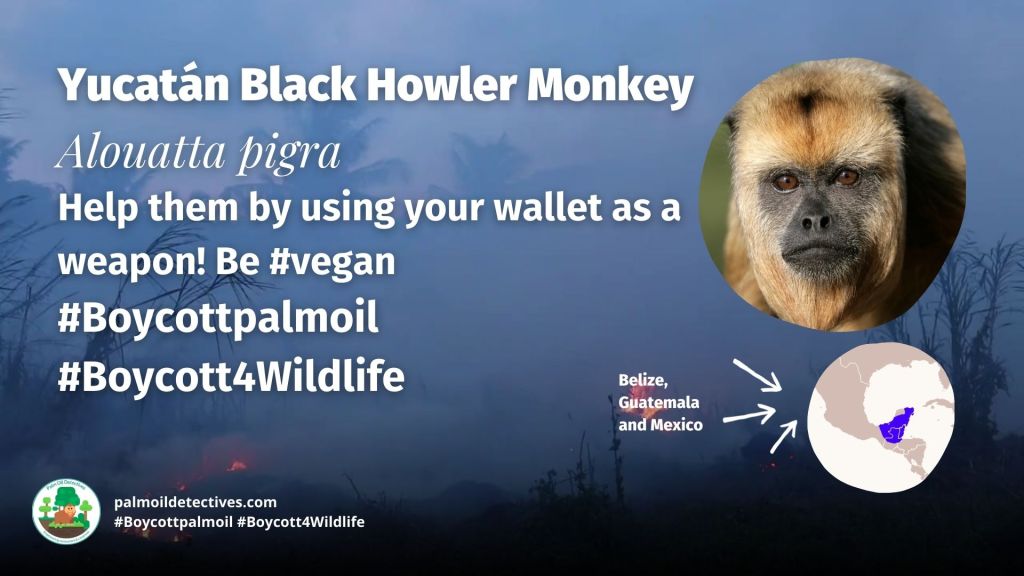
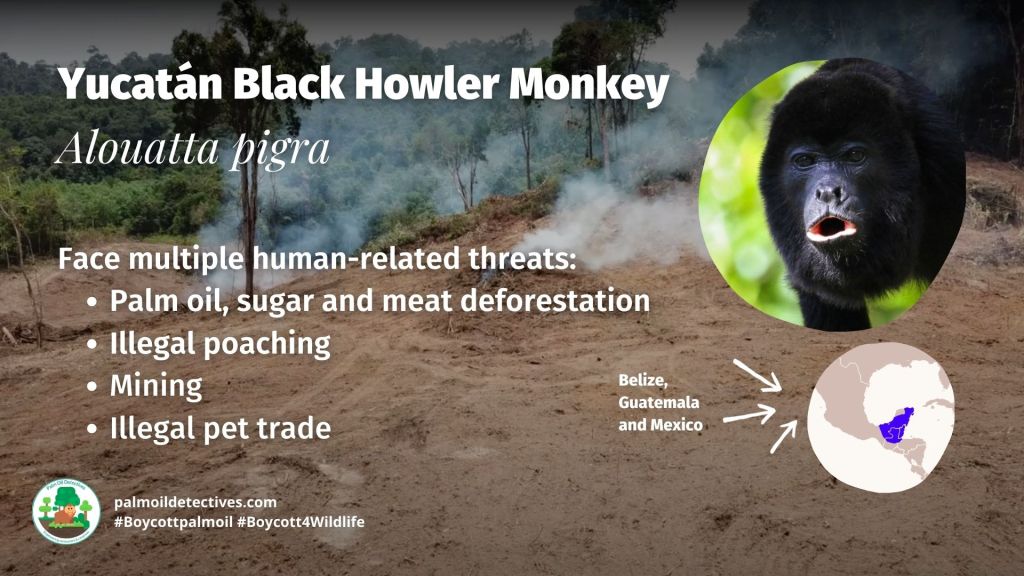
Support the conservation of this species
Further Information

Cortes-Ortíz, L., Rosales-Meda, M., Marsh, L.K. & Mittermeier, R.A. 2020. Alouatta pigra. The IUCN Red List of Threatened Species 2020: e.T914A17926000. https://dx.doi.org/10.2305/IUCN.UK.2020-3.RLTS.T914A17926000.en. Downloaded on 05 March 2021.
Van Belle, S., Estrada, A., & Garber, P. A. (2014). The function of loud calls in black howler monkeys (Alouatta pigra): Food, mate, or infant defense? American Journal of Primatology, 76(12), 1196–1206. https://doi.org/10.1002/ajp.22304

How can I help the #Boycott4Wildlife?
Take Action in Five Ways
1. Join the #Boycott4Wildlife on social media and subscribe to stay in the loop: Share posts from this website to your own network on Twitter, Mastadon, Instagram, Facebook and Youtube using the hashtags #Boycottpalmoil #Boycott4Wildlife.
2. Contribute stories: Academics, conservationists, scientists, indigenous rights advocates and animal rights advocates working to expose the corruption of the palm oil industry or to save animals can contribute stories to the website.
3. Supermarket sleuthing: Next time you’re in the supermarket, take photos of products containing palm oil. Share these to social media along with the hashtags to call out the greenwashing and ecocide of the brands who use palm oil. You can also take photos of palm oil free products and congratulate brands when they go palm oil free.
4. Take to the streets: Get in touch with Palm Oil Detectives to find out more.
5. Donate: Make a one-off or monthly donation to Palm Oil Detectives as a way of saying thank you and to help pay for ongoing running costs of the website and social media campaigns. Donate here
Discover more from Palm Oil Detectives
Subscribe to get the latest posts sent to your email.




